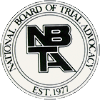News & Resources
Published Medical Journal Articles Concerning HRT Revealed to Be “Ghostwritten”
Recently disclosed court documents reveal that Wyeth, the pharmaceutical giant behind hormone replacement medications Premarin and Prempro,has played a “major role” in 26 scientific articles published backing the medications. The articles are being criticized as over-emphasizing the benefits of hormone replacement therapy and downplaying the known risks. Wyeth solicited and paid surrogate non-medical authors to draft the articles and then paid doctors, who were “consensus builders” within the medical community, to sign off as authors in order to create the illusion of a positive general consensus among doctors that the therapy was safe and effective. And for a time, this “ghostwriting” worked. Sales of Wyeth’s HRT drugs soared to $2 billion in 2001.
But, in 2002, a huge ($700 million, 8 year) U.S. government study (WHI) stopped early when researchers found menopausal patients faced a big increased risk for invasive breast cancer, heart disease, and stroke while on HRT medication. Multiple follow-up studies have been published including one from February of 2009 in The New England Journal of Medicine that support the conclusion that the decline in U.S. breast cancer rates is largely related to the decline in HRT use. Sales have plummeted for HRT medication in light of recent media reports, and prescriptions are down from nearly 70 million in 2001 to less than 15 million in 2008.
Wyeth claims that the practice of hiring surrogate authors who serve as “ghostwriters” and then having doctors sign off on these favorable articles is common practice and a matter of convenience, not deception. Wyeth also claims that the articles are scientifically accurate. Even if convenience is a valid consideration – and even if the numbers in the articles were accurate – that does not mean that the articles were not written in a way favorable to Wyeth (when in fact, they were). Nor did the articles disclose Wyeth’s funding of the article’s production. Effectively – whether or not Wyeth’s ghostwritten articles were truthful in what they did say is irrelevant because it was deceptive in what they did not say.
Our firm has been deeply involved with HRT litigation, and we currently are representing over 100 women injured by HRT medication. In May of 2010, our firm has the first HRT trial scheduled in the State of Florida against Wyeth.




















